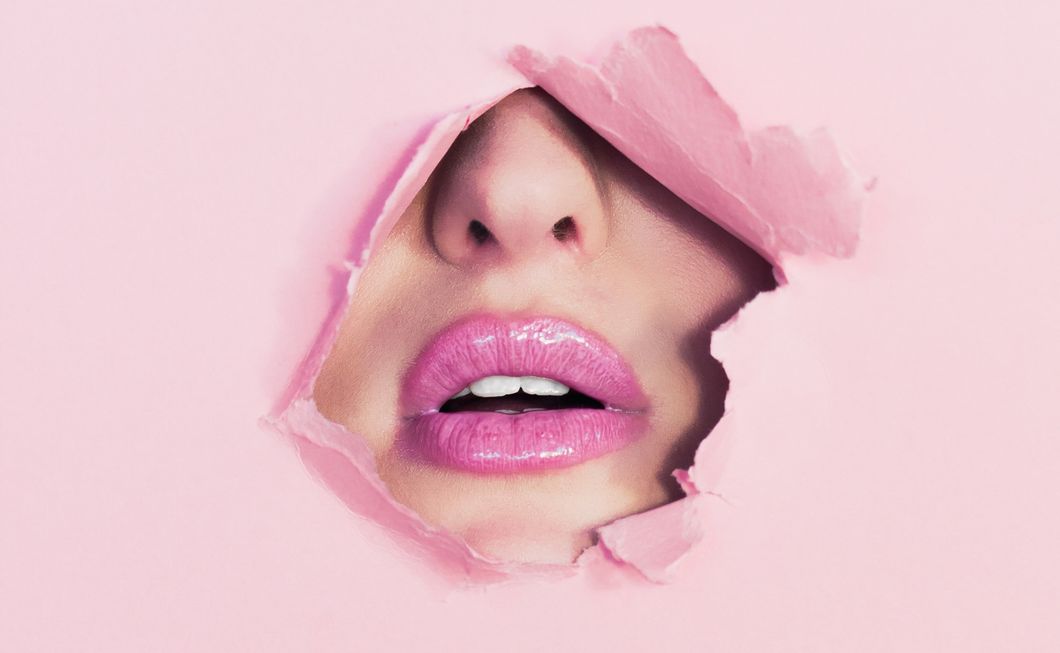Beauty has always been a subjective concept, however, there are certain enduring features of mental and physical attractiveness that have continued to be ascribed to women. The longstanding practice of equating specific traits with femininity has distorted the perception of what it means to be a woman and skewed the value that society places on gender.
Throughout history, the characteristics attributed to the ideal feminine personality portrayed a certain image. The most attractive is one who has dainty features, is pretty in a non-threatening way, is spontaneous yet mild-mannered, and one who can uphold a husbands name. Measuring attractiveness based on physical appearance makes the assertion that possessing "feminine beauty" and male attention are sustainable sources of esteem to be drawn on, and does not encourage the development of skills or talent that bring fulfillment. The box that this confines women to limits their aspirations and potential for happiness, and breeds unhealthy competition among them.
Looking back on the expectations for women in prior decades, the 21st-century woman has made strides in terms of reconstructing the narrative about what a woman should be. Where it was once unheard of for women to leave the home and pursue a career, women are currently excelling in their fields and overcoming the obstacles posed by lingering hostility for their presence in the workplace while balancing their families if they so choose. Female athletes are breaking unprecedented records and inspiring young women and girls to do the same. Women are recognizing their own beauty without confirmation of it from societal standards and loving themselves as is. Young women are finding their passions and learning to use their voices to advocate for the things which matter most to them. The revelation for the contemporary girl is that her potential is as limitless as she believes it is, and that the love that she has for her life is what makes her beautiful. Although this new definition of womanhood has proven to be far more accessible to girls of the modern generation, the attributes that make femininity more inclusive are sometimes not recognized as feminine at all.
While ours is a generation characterized by progressiveness, traditional standards of female beauty are still deeply rooted in our social conscience. This means that as much as we admire and support the cultivation of the qualities of contemporary femininity, we still dismiss those traits as parts belonging to the feminine identity. In my personal experience, I've found that girls who are strong and forward in pursuing what they want, are viewed differently from their less direct counterparts. The executive virtues demonstrated by actively advocating for themselves are still associated with masculine personalities and are often received by said personalities with respect, but lack of acknowledgment for this being a shared virtue between the two. In addition to the mental aspects, the increased confidence in modern women has led them to express themselves through their appearance in new ways that challenge conventional beauty standards. Bolder, less mainstream looks have become more common in everyday wear, and are applauded, certain looks that do not follow a ladylike pattern cause the wearer's femininity to be questioned. Women are often discouraged at the prospect of being seen as masculine or not feminine enough, but it should be remembered that life's beauty is not defined by spectators, but by the participant.
The feminine identity is an inherent part of womanhood and is not subjective to dress, body type, temperament, or race.



 StableDiffusion
StableDiffusion
 StableDiffusion
StableDiffusion
 student thinking i shouldnt have procrastinated all semester
StableDiffusion
student thinking i shouldnt have procrastinated all semester
StableDiffusion
 Photo by
Photo by  Photo by
Photo by  Photo by
Photo by  StableDiffusion
StableDiffusion
 StableDiffusion
StableDiffusion
 Photo by
Photo by  Photo by
Photo by 


 Lumiere figure at the Disney Store at the Ala Moana Shoppi… | Flickr
Lumiere figure at the Disney Store at the Ala Moana Shoppi… | Flickr








 StableDiffusion
StableDiffusion StableDiffusion
StableDiffusion 10. Extra BlanketsJuwenin Home 100% Cotton Knitted Throw Blanket
10. Extra BlanketsJuwenin Home 100% Cotton Knitted Throw Blanket StableDiffusion
StableDiffusion StableDiffusion
StableDiffusion File:Kishlaru familie.jpg - Wikimedia Commons
File:Kishlaru familie.jpg - Wikimedia Commons Photo by Hanna Balan on Unsplash
Photo by Hanna Balan on Unsplash StableDiffusion
StableDiffusion black blue and yellow round illustrationPhoto by
black blue and yellow round illustrationPhoto by 













